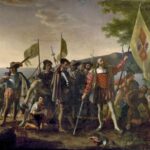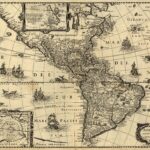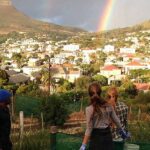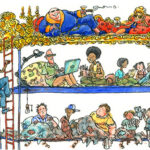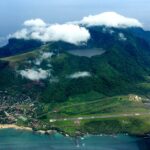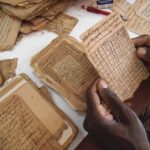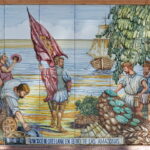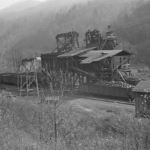Blog
Literature, Images, and Collections: Assemblages of Settler Colonialism in Latin America
Apr. 25, 2023— Sahai Couso Díaz is a 2022-23 Graduate Student Fellow from the Department of Spanish and Portuguese. My current research builds upon the growing engagement by decolonial scholars and public intellectuals with long-lasting, pseudoscientific rhetorics of race. I fold together poetry, natural history, proto-anthropological debates, archival documents, scientific collections, and images to elucidate the local...
My Journey as a Literary Scholar: From Theory to Archives
Apr. 21, 2023—André Ramos-Chacón is a 2022-2023 “Mending and Transforming” Graduate Student Fellow For five years, as an undergraduate student of literature in Peru, I was taught to understand, appropriate, and apply theory for my study of books. Though, arguably, I was being taught at the margins of the academic establishment —in a State University in Arequipa,...
Black Queer and Trans Anthropocenes
Apr. 6, 2023—Cameron Clark is a 2022-23 Graduate Student Fellow from the Department of English. The Anthropocene has come to define a corpus of accumulated threats to species life, ranging from global warming and climate change; to environmental toxicity and pollution; to extinctions, loss of biodiversity, and the subsequent collapse of various ecosystems across the planet. Yet,...
A Philosophy of Class in the Twenty-First Century
Apr. 3, 2023—Emerson Bodde is a 2022-23 Graduate Student Fellow from the Department of Philosophy My research works within the overlap between social and political philosophy, which study normative and descriptive arguments and concepts pertaining to collective human engagement, and the history of philosophy, which organizes research by contextualizing philosophical arguments in terms of their social, political,...
Narrative Nomads: Resistance in the 21st-century African Hispanophone (Equatorial Guinea and the Western Sahara)
Mar. 29, 2023—Caroline Colquhoun is a 2022-23 Graduate Student Fellow from the Department of Spanish and Portuguese For many, the phrase “Spanish Empire” calls up notions of Spain’s colonies in the Americas and the Caribbean—places that were decolonized by the end of the 19th century. In Africa, however, Spain’s imperial influence lingered far longer. Equatorial Guinea and...
On Images
Mar. 22, 2023—Vesna Pavlović is a 2022-2023 RPW Center Faculty Fellow. This year’s group is exploring the theme of “Mending and Transforming.” Images have taken an unprecedented role in our lives. Vast amounts of existing and newly taken photographs, found and computer-generated, are widely and instantaneously disseminated through social media platforms. My photography challenges these conditions by exploring...
Vital Infrastructures: The Affects, Power, and Environments of Infrastructural Media
Mar. 9, 2023—Maren Loveland is a 2022-2023 “Mending and Transforming” Graduate Student Fellow In a 1939 issue of the Daily Worker, a headline reads, “‘Uncle Sam,’ Producer of Vital Films.’” As the brief article explains, in 1939, the United States government began distributing state-produced films to the general public, who could watch federal cinema at their local...
The History of Radical Women in the Cold War Era
Mar. 7, 2023—Allison Schachter is a 2022-2023 RPW Center Faculty Fellow. This year’s group is exploring the theme of “Mending and Transforming.” I am currently working on the history of radical women in the Cold War era. My research focuses on Black and Jewish women intellectuals who were the subjects of censure as leftists, feminists, and Jewish...
Transamazonic Bondage: Violence, Networks, and Race (Brazil, 1688-1798)
Mar. 2, 2023—Alexandre Pelegrino is a 2022-23 Graduate Student Fellow from the Department of History. It is beyond question that the enslavement of Indigenous Americans played a decisive role in the formation of colonial societies in the Americas. Yet, most people assume that it was a practice confined to the early moments of colonization. In other words, Indigenous...
The Trans in “Just Transition”
Feb. 9, 2023—Nicholas Reich is a 2022-23 “Mending and Transforming” Graduate Student Fellow. How to “transition” to a world that isn’t fuel dependent? Maybe this was always a utopic question. Fuel scholar Heidi C. M. Scott explains, “We can’t even see oil because we look through oil glasses…we are, ourselves, petroleum products.” Toothbrushes, lip balms, sex toys, the...
